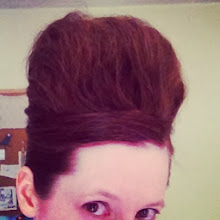
Hume, because he was a genius with an insanely overproductive brain, came up with the following unbelievably simple yet basically indestructible argument against induction:
There are two kinds of arguments: inductive and deductive. So, an argument in defense of induction must be either deductive or inductive. You cannot give a deductive argument for induction, because nothing about the future follows deductively from the past. An inductive argument for induction is circular. Hence, induction is indefensible.
Nothing wrong with trying to model one's thought on geniuses, so I present the following consideration of The Question:
When Will Your PhD Be Finished?
There are two reasons that you might ask this question: (1) as a conversational gambit, or (2) because you take it that the asking of The Question has some role in contributing to the actual completion of the dissertation. Consider (1). A conversational gambit by definition attempts to start a conversation. Typically also, it aims not to make the interlocutee feel anxious, insecure, vulnerable, or generally terrible about themselves. This is why "I think you're stupid" and "Have you thought about how many years you have left to live?" are generally recognised as bad conversation starters. The Question will often stop the conversation dead, in which case it fails by (1)'s own justificatory lights. Even if it does not, you have reduced the interlocutee to a private hell while they mouth (typically false) inanities, for which at least a prima facie argument could be made to the conclusion that a conversation is no longer actually occurring. So much for (1).
Now assume (for purposes of reductio) that there are persons who believe that The Question has a role in getting dissertators to complete. They believe it because either (a) The Question is encouraging (especially in the well-known alternative formulation "How is your thesis going?") (b) The Question is threatening. (2a) is straightforwardly false, which does not entail that it is irrational to believe it. Except for anyone who has themselves written a dissertation or works for a university in which the circles of hell involved in doing so are so well-known that lightbulb and knock-knock jokes are produced about them. Ergo, most people who assert (2a) believe a contradiction. So finally, (2b). Since the interlocutor is almost never in a position to cause anything bad to happen to the unfinished dissertator that was not already going to happen as a result of his or her unfinishedness, (2b) is redundant and therefore fails to provide any grounds to ask The Question. Further, since The Question causes all sorts of negative impact as described above, the lack of justification combined with the known intent to threaten make it plain evil.
Conclusion: Don't Ask The Fucking Question. Ever.























